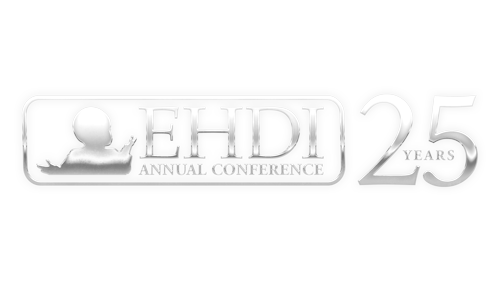2026 Early Hearing Detection & Intervention Conference
March 15-17, 2026 • Jacksonville, FL
3/11/2025 | 3:30 PM - 4:00 PM | It’s Time to Re-Invent the Wheel: A Report on Quality Improvement Efforts in a Newborn Hearing Screening Program | 319
It’s Time to Re-Invent the Wheel: A Report on Quality Improvement Efforts in a Newborn Hearing Screening Program
A newborn hearing screener has, perhaps, the most imperative role in a child’s hearing loss journey. The initial newborn hearing screening and manner in which results are delivered has a direct impact on whether a family will adhere to follow-up recommendations. This presentation will highlight data from a large birthing facility in Florida, which births about 400-500 babies per month and has a NICU that holds over 200 infants. With these large patient volumes, it is imperative to have measures in place to ensure that hearing screenings are completed accurately and efficiently as this ensures proper diagnosis, follow-up, and intervention in accordance with EHDI guidelines. This presentation aims to highlight the management transition of a large newborn hearing screening program, which resulted in a quality improvement endeavor focused on programmatic changes to the systemic screening practice. This presentation will also discuss the transition from inpatient screening to outpatient diagnosis and the challenges and obstacles that are present in navigating the medical records, state database, and organizational management. Quality improvement measures that will be reviewed include: improvement in loss to follow-up rates, improvement in age of identification and intervention, and improvement in the state mandated metrics that hospitals are required to adhere to. Finally, this presentation will highlight the importance of streamlining a newborn hearing screening program to ensure that the health system does not further contribute to health disparities that currently exist amongst the minority population that this hospital serves. This presentation will be enhanced by demonstrating hospital data as well as individual case studies.
- Discuss outcomes within a newborn hearing screening program that contribute to decrease in loss to follow up
- Highlight programmatic changes that align with the goals of the audiologists, birthing hospital, and outpatient clinic
- Emphasize how efforts made to improve program help to mitigate health disparities among minority populations
Presentation:
3545975_18159Chrisanda Sanchez.pdf
Handouts:
Handout is not Available
Transcripts:
CART transcripts are NOT YET available, but will be posted shortly after the conference
Presenters/Authors
Samantha Espinal
(Primary Presenter,Author), University of Miami Children's Hearing Program, sgespinal@med.miami.edu;
Dr. Samantha Espinal is a pediatric audiologist and the newborn hearing screening coordinator at the University of Miami Ear Institute’s Children’s Hearing Program. She earned her clinical doctorate in audiology from Gallaudet University and completed her externship and Leadership Education in Neurodevelopmental and Related Disabilities (LEND) training at the Kennedy Krieger Institute. Samantha is passionate about pediatric audiology, early intervention, and improving healthcare accessibility. Her day to day practices includes pediatric diagnostics, ABRs, hearing aids, and bone conduction devices.
ASHA DISCLOSURE:
Financial -
No relevant financial relationship exists.
Nonfinancial -
No relevant nonfinancial relationship exists.
AAA DISCLOSURE:
Financial -
Financial relationship with University of Miami.
Nature: none.
Nonfinancial -
No relevant nonfinancial relationship exists.
Chrisanda Sanchez
(Co-Author), University of Miami Department of Otolaryngology, cmsanchez@med.miami.edu;
Dr. Chrisanda Sanchez is a bilingual pediatric audiologist at the University of Miami. She is an Assistant Professor in the Department of Otolaryngology, the lead pediatric cochlear implant audiologist, and Interim Director of the Children’s Hearing Program at the University of Miami. Dr. Sanchez’s clinical career has centered around pediatrics, specializing in pediatric cochlear implants, hearing aids, and other implantable devices. Her research focuses on improving access to hearing healthcare for Spanish speaking patients and implantable devices, specifically targeting pediatric device implantation and outcomes.
ASHA DISCLOSURE:
Financial -
• Receives Honoraria excluding diversified mutual funds,Grants for Teaching and speaking,Independent contractor from Cochlear Americas.
• Receives Salary for Employment from University of Miami.
Nonfinancial -
No relevant nonfinancial relationship exists.
AAA DISCLOSURE:
Financial -
Financial relationship with University of Miami
Cochlear Americas.
Nature: University of Miami - Employment, salary
Cochlear Americas - Grant/research support & honorarium.
Nonfinancial -
No relevant nonfinancial relationship exists.
